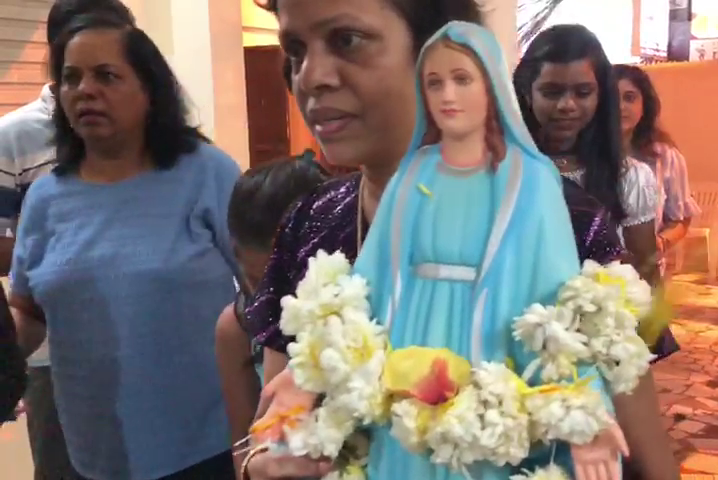 Panaji : 24th Nov 2018 ::: Aamir Khan is called ‘Uncle Mir’ in China: Marco Mueller (Film Critic & Historian, Artistic Director, PYIFF, Pingyao) … Violence is an inescapable part of our culture: Ivan Ayr (Filmmaker) … If your film isn’t pirated then you have a problem: Paolo Bertolin (Programmer, Venice International Film Festival) …. The audience for indie films is thin but spread wide across the world: Prakash Bare (Actor & Producer) … The Filmmakers Pitch sees filmmakers exciting pitches on films from across South Asia on Day 3 of the Film Bazaar
Panaji : 24th Nov 2018 ::: Aamir Khan is called ‘Uncle Mir’ in China: Marco Mueller (Film Critic & Historian, Artistic Director, PYIFF, Pingyao) … Violence is an inescapable part of our culture: Ivan Ayr (Filmmaker) … If your film isn’t pirated then you have a problem: Paolo Bertolin (Programmer, Venice International Film Festival) …. The audience for indie films is thin but spread wide across the world: Prakash Bare (Actor & Producer) … The Filmmakers Pitch sees filmmakers exciting pitches on films from across South Asia on Day 3 of the Film Bazaar
Day 3 of the Film Bazaar saw activity around the business of cinema peak with multiple parallel meetings throughout the day between those seeking to pitch their films to interested buyers, distributors, or festival programmers. An exciting slate of panel discussions ignited as well as sated the curiosity of the audience on relevant issues around cinema and its future.
The most interesting session of the day saw 20 filmmakers pitch their films to the audience under the newly launched initiative at the Film Bazaar called Filmmakers Pitch. The pitch which was open to all the films in the Viewing Room was added to the Bazaar this year based on the suggestion of filmmakers at the previous editions. Each filmmaker got five minutes on stage to present their films. Most of them were looking for finishing funds and help with distribution and marketing of their almost-ready-for-release films.
The Knowledge Series continued with its amazing slate of sessions of value to the filmmaking community. The most interesting of these was the one on ‘Films without Borders – Bridging cultures’ where Marco Mueller (Film Critic & Historian, Artistic Director, PYIFF, Pingyao) explained in detail the Chinese market the reason for the recent success of Indian films in that market.
“PK was the turning point for Indian films in China when they went from being niche to being mass. The success of PK, Three Idiots and Dangal, has really been because of the many years of marketing that was done by the distributors of these films in China. The marketing followed practices that resonate with Chinese audiences and included reaching out to the Chinese superstars who endorsed these films leading to their fan clubs spreading the message and helping these films get an opening push. However eventually it was because the films reflected the shared values between India and China that they did so well. Now Aamir Khan is lovingly called Uncle Mir in China”, said Mr. Mueller. The panel then helped the filmmakers understand what it takes for a film to travel internationally.
Mr. Mueller was on another interesting panel that had some old India hands on it who discussed the state of South Asian cinema and its future. Alongside Mr. Mueller, this panel included Derek Malcolm (Film Critic), Paolo Bertolin (Programmer, Venice Film Festival), Dominique Welinski (Producer) and was moderated by Orly Ravid (Founder, The Film Collaborative).
While the panel was divided over the future of South Asian cinema, they were united in their opinion on how films from the region can succeed globally. “It cannot just be one man’s fight, you can’t do it alone. You need allies to push your cinema. I am very happy that Film Bazaar has a created a space for us to come here and interact with filmmakers”, said Mr. Mueller. This was echoed by Ms. Welinski who said, ”People should really talk to each other, come together and organize themselves to be able to do this better.”
On the topic of co-productions, the panel felt that that the filmmakers should be realistic about their needs and pursue co-productions accordingly. “It’s not easy” was a common refrain. Another common query from the filmmakers in the audience was the challenge of cracking the festival circuit. Paolo Bertolin threw light on how to approach it by saying that, “the main target should be to make a good film that is true to the original vision of the filmmaker. Then you should send your film to as many festivals as possible.”
Discussion soon veered to the issue of piracy and how the Chinese companies were using it to decide which film to release in China. Mr. Bertolin ended the session by repeating what he said he told filmmakers very often.
Two interesting sessions involving filmmakers were also part of the schedule today. The first was a session on violence in cinema with filmmakers Devashish Makhija (Ajji, Bhonsle) and Ivan Ayr (Soni) engaged in a conversation with Somen Mishra (Head, Creative Development, Dharma Productions).
When probed how he decides whether or not to show violence on screen, Mr. Makhija said “It’s important for me to make the audience complicit in the violence on screen but I am careful not to make it exploitative or glamorous.”
Mr. Ayr called for action rather than dejection when confronted with violence all around us. He said, “Let’s not be frustrated, let’s do something about changing the system which we are all a part of.”
A panel on building resources for indie and experimental cinema spoke about the need to create an alternative model for producing and distributing artistic cinema. All the four panelists had a shared history, each having worked together on films like Oraalppokkam and Ozhivudivasathe Kali in various capacities.
Prakash Bare (Actor & Producer) spoke about the challenge of getting the audience to watch the films. “Once they’ve watched the film, they are wowed. They say they didn’t know such films exist.”
The last session in the Knowledge series saw the duo from Starlight Runner Entertainment, Jeff Gomez (Founder & CEO) and Steele Filipek (Executive Editor) take the audience through the relatively new field of transmedia which is all about leveraging the world of possibilities inherent in a film to be taken on to other platforms, thus helping build interest, franchisees and eventually revenue models. The duo spoke about their experience with the immensely popular Pirates of the Carribean franchisee and how they helped extend take the world and the characters on to platforms like books, video games and theme parks.
The two of them, with the moderator Mr. Rohan Sippy (Filmmaker & Producer) engaged in a conversation with filmmaker Gitanjali Rao on how her film Bombay Rose (animation) could go transmedia and leverage other platforms.
The company has also consulted with Bahubali where they were involved from the very early stages. Speaking over video from the US, Mr. Gomez said that, “It was thrilling to see the war sequence from Bahubali go viral across the world. That was due to the willingness of the creators of the film to build a transmedia model.”
As on the previous three days, the Producers Workshop continued to enlighten the young producers on the various aspects of production. A roundtable session in the morning had them talk to experienced professionals representing every facet of filmmaking while later in the day Orly Ravid (Founder, The Film Collaborative) shared her views on how to maximize the festival circuit. She told the eager producers that “there’s a lot of serious film making in India. It’s way better than what I have seen in the USA. The films here are very cinephile-oriented. To maximize a film’s potential, you need to have its world premiere at a festival of the highest level that you could manage. You must also be aware of which festival your film is more suited to.”
 Panaji: November 27, 2018 .. Power Minister, Shri Nilesh Cabral inaugurated Mega Health Camp organised by Directorate of Health Services (DHC), Goa Medical College (GMC), Bambolim and Goa Dental College and Hospital in association with Curchorem-Cacora Municipal Council at Sarvodaya Educational Society’s High School premises, Curchorem.
Panaji: November 27, 2018 .. Power Minister, Shri Nilesh Cabral inaugurated Mega Health Camp organised by Directorate of Health Services (DHC), Goa Medical College (GMC), Bambolim and Goa Dental College and Hospital in association with Curchorem-Cacora Municipal Council at Sarvodaya Educational Society’s High School premises, Curchorem.
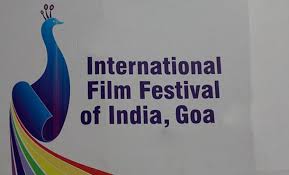



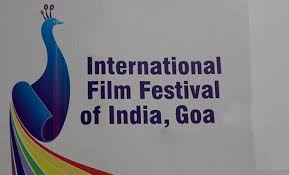
 Panaji: 26 NOV 2018 …
Panaji: 26 NOV 2018 … 


 Panaji :: 25 NOV 2018 … The 6th day of the 49th International Film Festival in Goa saw varied subjects like Varanasi handicrafts, Varanasi funeral ghats, and Naga bravery get interwoven with each other at a ‘Meet the Directors’ event at the Media Centre this morning. Three non-feature films ‘Bunkar: The Last of the Varanasi Weavers’, ‘Nani Teri Morni’ and ‘Burning’ were the topics of discussion.
Panaji :: 25 NOV 2018 … The 6th day of the 49th International Film Festival in Goa saw varied subjects like Varanasi handicrafts, Varanasi funeral ghats, and Naga bravery get interwoven with each other at a ‘Meet the Directors’ event at the Media Centre this morning. Three non-feature films ‘Bunkar: The Last of the Varanasi Weavers’, ‘Nani Teri Morni’ and ‘Burning’ were the topics of discussion.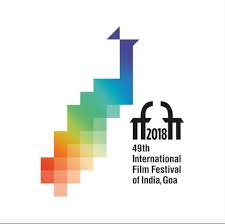

 Panaji: November 24, 2018
Panaji: November 24, 2018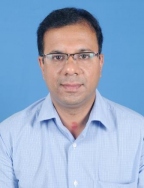
 Panaji: November 24, 2018 …
Panaji: November 24, 2018 … 

